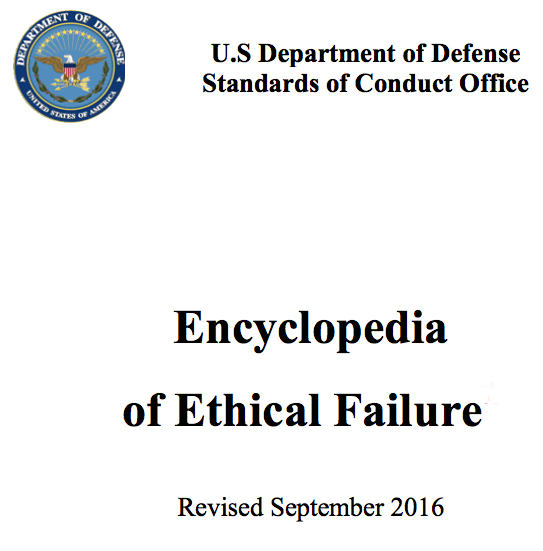A colleague recently sent me an article written by Matthew Gault about a “hilarious — and infuriating — database of the government’s ethical shortcomings”. An earlier version of this story was published in November 2014 by the magazine War Is Boring.
Just like in the infamous “Laglag Bala” scandal involving personnel of the Ninoy Aquino International Airport and the Department of Transportation’s Office for Transportation Security (OTS), one can deduce the big difference between public officials of the Philippines and the United States.
Here in the Philippines we wondered why no apparent action was taken against those responsible for airport security, and instead, airport and OTS officials kept on giving excuses. In the United States (and many other countries that had anomalies in their security functions that included theft of items in passenger baggage, the anomalies reach the media for one reason – the agencies themselves reported the cases because they uncovered the anomalies and apprehended – and charged the culprits in court or otherwise took other drastic measures against them. I learned that the US Transportation Security Administration (TSA) did so in more than 300 cases.
By the way, at the height of the scandal, we tabled in the Maritime Forum possible similar cases in maritime ports and transport, and came out virtually nil. Perhaps checking for small items is not seriously done? Or should we just congratulate the agencies involved?
One case often stated in US procurement case studies was that of USD200 or so nuts and bolts in the supply inventory. Indeed, procurement anomalies do occur. At the Clark and Subic bases when they were still used by US Forces, the US Navy-Air Force Commissary and Exchange Service made news too when its head, a USAF LTC, was caught by US military investigators within the establishment. He had lots of money stashed in a bank account. The NCIS (now made more popular through the TV series of that name) at work!
Anyway, back to the Pentagon project, as covered in the Gault article, quoted directly from it:
Former Standards of Conduct director Stephen Epstein created The Encyclopedia of Ethical Failure a decade ago. He wanted to compile such ethics cases for training purposes — and also to publicly shame the goons wasting taxpayer cash.
In July 2013, an Air Force major general went on a binge and was caught while on a diplomatic mission in Russia. That November, Navy officials also launched an investigation relating to misconduct involving top officers and a Malaysian contractor named Leonard Glenn whose nickname was “Fat Leonard”. It resulted in Glenn’s indictment and, among others, a former US Naval Attaché in Manila plead guilty to a charge of conspiracy to commit bribery from 2006 to 2008 while he was in the Navy.
That contractor also did work for USN ships visiting the Philippines, and ran afoul with DENR when media reported that it dumped oily waste in Philippine waters off Subic Bay. The incident was later investigated by the Philippine Senate and caused embarrassment to the Philippine subsidiary of the Singapore-based company, Glenn Defense Marine Asia.
Gault’s other reports included:
- The Special Inspector General for Afghanistan Reconstruction reported on corruption and waste by contractors and military officials.

- A listing entitled “Secret Agent Man?” describes one industrious Environmental Protection Agency official who scammed the government for close to a million dollars. The EPA guy routinely ducked out of work … for days at a time. When his supervisors asked him about his absences, he told them he was doing top-secret work for the CIA. “He lied about contracting malaria,” the report continues, “which cost the EPA $8,000 over three years for a parking space reserved for the disabled.”
- A “most light-hearted official report” covered a fraud case by one sergeant in an attempt to qualify for Married Soldiers Allowance. He convinced his girlfriend to pretend to be his wife. He even forged a marriage license to substantiate the union. He took taxpayers’ money amounting to almost $30,000 in healthcare and housing, and was finally caught when the girl friend ended up turning him in to military investigators.
- Another common entry in the encyclopedia involves misuse of government aircraft. Helicopter crews in particular have a bad habit of flying missions they aren’t cleared for. One famous case involved a Department of Homeland Security border officer landing a helicopter next to his daughter’s elementary school. The kids were impressed. Parents, educators and the government were not. That incident pales in comparison to what the encyclopedia calls “Taking the Blackhawk Out for Lunch.” A “concerned citizen” called an inspector general after seeing a helicopter parked behind a restaurant. A quick glance inside revealed soldiers eating lunch with civilians.
Adds Gault:
“The Encyclopedia of Ethical Failure is approaching 200 pages. Two hundred aggravating and amusing pages. The office most recently updated the book in September. The big update usually comes in July.
Individually, the cases are all bad news. The good news is that authorities often catch and punish government cheats, thieves and frauds. Penalties for ripping off the American taxpayer range from huge fines to hard time in prison. And when the trial ends and punishment begins, many military ethics cases wind up in the Pentagon’s Encyclopedia of Ethical Failure.”
“Standards of Conduct,” Gault adds, “will keep updating the encyclopedia as long as they need to drive home the point about ethical behavior. The public will get more great stories about idiots abusing their power — and going down for it.”
Philippine cases. I recall that towards the end of the Cory Aquino administration, the Philippine Center of Investigative Journalism (PCIJ) came out with a well-researched book on corruption by Philippine congressmen. It did not have much effect, and years later during Benigno Aquino III’s administration, we were entertained by the scenario of politicians charged with plunder through the PDAF scam, no doubt developed following the example of the “Fertilizer scam” devised by the Arroyo government.
Someone should come out with a plan similar to the Encyclopedia of Ethical Failures. But before that, we must first ensure that government courts and the Ombudsman are not influenced by politicians who cause those convicted, or charged with plunder or corruption, to go scot free just because they contributed to election campaigns of influential winning candidates.
And there are many of them that bear watching.
